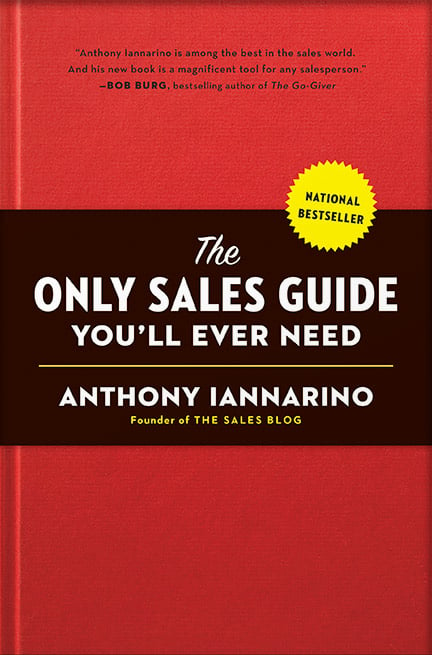The Gist:
- Clients don’t change when they are not compelled to change.
- One way to uncover what might cause them to change is to ask directly: “what’s keeping you up at night?”
- A more modern approach starts with a different type of discovery, one that has not yet been commoditized.
You are not going to create a new opportunity if your prospect is not compelled to change. No one changes when things are going well for them; they change when things are not what they need to be. Like any outcome you pursue in sales, there is more than one way to get to your desired end state, but not every path creates the same value for your client.
There is now a new sales conversation, one built around delivering a better prospective client experience and improving your odds of winning the deal. Following this new model is all but certain to eliminate your legacy approach competitors. It starts by recognizing that you win and lose deals early in the conversation, most critically during the discovery phase.

The Commoditization of the Sales Call and Its Proponents
We are using the word “commodity” as economists define it: it is fungible (meaning interchangeable) and the market has no concern about who produced it. One widget is as good as the next. Under this definition, the sales call is now a commodity.
Salesperson A walks into a client’s office, desperately attempts to create rapport, spits out a bunch of facts about his company, points to his high-profile clients, and hopes that his contact finds them credible. He then asks the client a set of questions designed to get them to confess that they have a problem. Salesperson A is not concerned about the client’s experience. His concern is presenting his solution as the answer to the client’s problem, something he believes is only possible through this straight-line path.
Two days later, Salesperson B sits down in the very same chair that Salesperson A occupied less than forty-eight hours earlier. Within the first three minutes, the prospective client feels both a sense of dread and déjà vu. Salesperson B executes the same approach as her competitor, working her way to the client’s pain point. In fact, the conversation is so similar that the client finds it impossible to tell the two salespeople apart. If you pressed the client to discern A from B, they would tell that Salesperson A might have been a little taller than Salesperson B.
The proponents of this approach believe that it’s the best way to make a sales call—and that best practices endure forever, immune to innovation or improvement. Over time, though, these “best practices” become legacy models that become ineffective long before their proponents recognize it.


The Hollowing of the Discovery Call
An honest assessment of the state of the discovery call would reveal that salespeople have executed the same approach for so long that they’re practically on autopilot. It’s easy to go through the motions, especially when the client knows their part just as well as the salesperson on the other side of the table. And they ought to—they’ve rehearsed them enough!
Once I created a list of all the reasons that would cause a client to change, then gave copies to all the salespeople on my team so they could keep track of our clients’ problems. One client ended up sitting on the same side of the table as the salesperson, and after spotting the checklist, he picked it up and promptly checked off all the boxes that applied to him. He handed it back to the salesperson, who was not certain what to do. If the only reason to do discovery is to identify a problem, then you may as well propose your solution right away. Why avoid the inevitable?
Imagine a decision-maker who finds themselves in uncannily similar sales calls twice a month, each following exactly the same structure. The company logos may change, but words and ideas are so similar that it feels like The Twilight Zone, Groundhog Day, and The Matrix all crammed into one conference room. If the data is right that most buyers try to avoid salespeople, one contributing factor may be that they create too little value. And, if we are being honest, they’re often boring and repetitive. Christopher Hitchens, whose likeness adorns a wall in my office, had his own commandment: “The one unforgivable sin is to be boring.”


The New Sales Discovery Conversation
When an approach has been commoditized, it is ripe for change. When everyone zigs, you should zag, especially when your prospective clients gain value from that zag. Being the fourth (or forty-fourth) salesperson to inquire cordially about what the client believes they might need to improve is more than boring—it’s useless.
In modern sales discovery, by contrast, you help your client discover a clearer understanding of their world. Instead of interrogating them with the same old set of questions, you provide insights and ideas that better position your client to make the necessary decisions—decisions that will help transform their company from its current state to a better future.
While this approach focuses on providing information that improves your client’s position, it doesn’t preclude asking the questions that give you a deep understanding of your client’s position and how best to help them. In fact, it improves your discovery by broadening what you can talk about, including the factors and the context that you and your client both need to include in your future decisions.
You Are Only a Heretic When You Are Early
If all this strikes you as more than a bit heretical, take that as evidence that your beloved sales approach has been commoditized. Know that there are salespeople who have moved forward with a different approach, one that avoids the many complaints buyers have about salespeople—without conflict aversion or a strong intention to be compliant. And know that they’re probably eating your lunch right now.
You are only a heretic early on. Sooner or later, you’ll find yourself a part of the masses. Once you recognize that, it’s time find some new heresy to pursue.
Do Good Work:
- Recognize the conversations that create value for your client in discovery.
- Remove any approach that has been commoditized to the point that your clients no longer find it valuable.
- Do discovery in a way that allows your client to both learn and provide you with information.













.jpg?width=768&height=994&name=salescall-planner-ebook-v3-1-cover%20(1).jpg)


